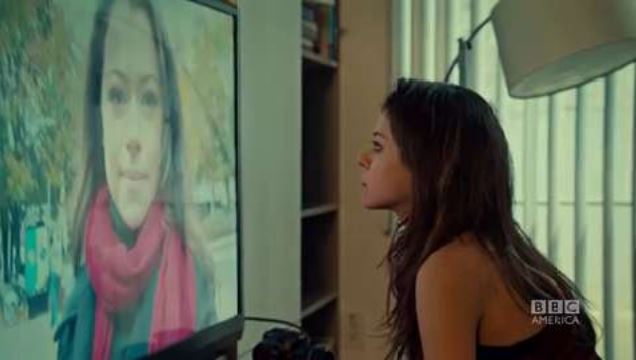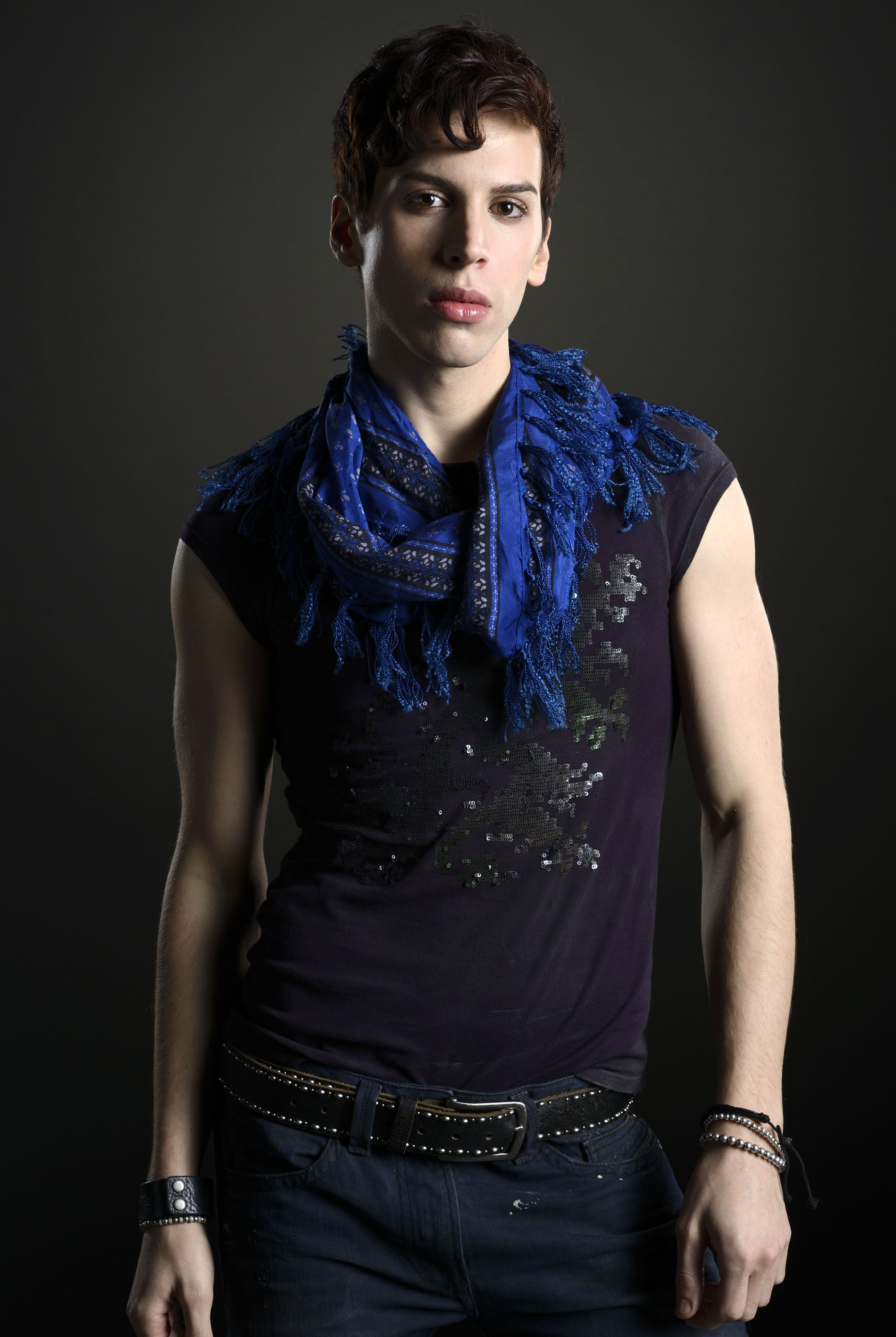I've been watching the hell out of Call the Midwife.
My dudes, this show gets me right in the feels. Now having completed its third, yes, third season, the BBC One drama has seen some major changes occur in the lives of the young midwives and the nuns of Nonnatus House. The most significant event of Season 3 is that Jessica Raine, who portrays the late Jennifer (Lee) Worth (on whose memoirs the show is based) has said goodbye to the series in the hopes of finding greener pastures elsewhere in some absurd little backwater known as Hollywood. After three seasons of filming graphic births, Raine is ready to move on to new challenges and new roles. Jenny starts a new job at a Marie Curie cancer hospital, working with terminally ill patients, and she begins her life with Philip Worth. However, her departure does not mean the end of the series. BBC has renewed Call the Midwife for Season 4, starting in 2015. Like all good ensemble shows, Call the Midwife has done a fine job of developing its supporting characters, so there is plenty of interest in Chummy, Trixie, Cynthia, kind Sister Julienne, BAMF Sister Evangelina and batty Sister Monica Joan.
RIGHT IN THE FEELZ!
If you watched all of Season 2 and the Christmas special, you will know that Sister Bernadette has thrown off her habit like she is Maria Fucking Von Trapp, and gotten herself married to Dr. Turner. She dyed her hair and went back to being called Shelagh and she is all kinds of prosh. Dr. Turner and Shelagh were being all kinds of improperly flirty in Season 1 and it's nice to see that relationship come to a successful conclusion. However, Shelagh discovers that her bout with tuberculosis during Season 2 has left scar tissue on her lady bits and she is told that it is unlikely that she will be able to conceive a child.
The show also shifted focus this season somewhat away from Jenny's personal life and more on the personal lives of Trixie and Chummy. Chummy has a bittersweet reconciliation with her posh mum, and she tries to become a Modern Lady, attempting to balance marriage and family with a career. And Trixie starts dating A VICAR.
Go on with your bad self, Trixie.
I'm sure there will be more development of Cynthia, and the producers have introduced two new characters: Sister Winifred, direct from the Mother House, and new midwife Patsy.
Call the Midwife is a huge hit in the UK and I encourage all of you duckies to tune in. The guys on this show are so hot. Even Dr. Turner is sexy for an old dude. Seasons 1 and 2 are available via Netflix streaming and through Netflix DVD. Generally, it airs Sunday nights at 8 EST on PBS.
Next in PBS news (I'm not frontin or nothin; I watch a lot of PBS) is Mr. Selfridge.
I'm actually glad I gave this show another shot. It's done the opposite of what Downton Abbey has done -- Mr. Selfridge started out weak and it's getting stronger. The shows are pretty comparable, and I do think Mr. Selfridge is a much better show at this point. Season 1 began in 1909, and Season 2 has moved forward in pastfuturetime to 1914, and addresses the outbreak of World War I. Harry (Jeremy Piven) and Rose (Frances O'Connor) Selfridge have stopped cheating on each other with really scary stalker people and are trying to rebuild their marriage. Since the show moved five years into the future, the role of Gordon Selfridge has been recast with an older actor (now portrayed by Greg Austin) and Harry sets the lad to work in the store, starting in the stock room and moving up to the perfume counter, where he begins a flirt with a young shopgirl. D'aww.
With the outbreak of war, Harry attempts to break into the British establishment by using his money and connections to secure a seat on the Procurement Committee. He runs into a roadblock in the form of Lord Loxley, who dislikes Harry on a personal level. The Procurement Committee is dismissive of Harry's attempts to break into the British aristocracy because he is of low birth and American and all that jazz.
Focusing more on the ensemble cast and their personal struggles has allowed the characters to become more fully fleshed out, and in many cases, more likeable. Case in point is Mae Loxley (Katherine Kelly), who during Season 1 was a very cougary vampy person, but this season has revealed that the formerly MIA Lord Loxley is a TOTAL fucking asshole and I kept wishing for Mae to push him down the stairs.
Just you wait, my dears.
There has also been a bit more focus on Store Ginger, Kitty Hawkins (Amy Beth Hayes), late of ladies' accessories. Kitty is now Miss Mardle's assistant, and she gets to boss the junior accessories assistants. Her character has revealed itself to be less catty and much more amiable, likely due to her character maturing, and through her burgeoning relationship with newspaper man Frank Edwards (British mainstay Samuel West). All workplace dramas need a ginger. Fact.
And then I told him I never wanted to speak to him again. I think I'm in love!
The title may be Mr. Selfridge, but the star of the show is, and always has been, Agnes Towler (Aisling Loftus). Agnes returns from her design studies in Paris and takes over as head of design. There, she must contend with the jealousy of wannabe rival in ladies' fashion, the bitchy Mr. Thackeray. Agnes is also conflicted due to the return from America of her former lovvvvaaahhh, Henri LeClair (Grégory Fitoussi) because, in his absence, she has grown closer to Victor Corleone. Agnes realizes she must choose between one of her suitors, and compounding her work and personal stress is the fact that her brother, George, is one of the very first to sign up for active military duty. Oh, the dramz.
Oui!
The adorable Miss Mardle (Amanda Abbington) receives two life bonuses this season, while Mr. Grove continues to be a clueless douche. If you haven't noticed, and you should, Amanda Abbington also appears on Sherlock as Mary Morstan, and she is totes Martin Freeman's lady friend in real life. She is just wonderful on Mr. Selfridge, and if you haven't tuned in, you should.
We'll mad your men. And sell it a sturdy pair of boots.
Seriously, this show has gotten under my skin. The first few episodes of the first season are melodramatic and silly, but this season has made up for it in spades. If you're looking for a British costume drama that has the bells and whistles of Downton Abbey, but with better writing and a perfume counter, I very much encourage you to get on board with Mr. Selfridge. The show's home network, ITV, has renewed it for a third season. Mr. Selfridge normally airs around 9 p.m. EST Sundays on PBS. Some episodes are available for streaming on PBS.org.
The next ensemble of which I speak is BBC America's Brit-Can-Am Orphan Black, which is an entirely different kind of ensemble show altogether.
My dudes, this show is crack. I can't say too much about the season thus far without revealing major spoilers.
Cosima (Tatiana Maslany) is working for the Dyad Institute, but the symptoms of her mysterious illness begin to worsen. Sarah (Tatiana Maslany) searches for answers about Mrs. S's involvement in Project LEDA. We learn more about pro-clone Rachel (Tatiana Maslany), and Helena (Tatiana Maslany) survived being shot by Sarah, but was abducted by some creepy International House of Prayer culty science people. Alison (Tatiana Maslany) turns into a pill popper due to her guilt over Ainsley's death, and the fact that she's finally realized that her husband, bumbling, oafish Donny, is in fact her monitor.
Canadian actress Tatiana Maslany (Tatiana Maslany) deserves some kind of acting Olympic gold medal. Much has been said about her performance and it all bears repeating. Her portrayal of each of the clones is so mesmerizing and utterly believable that you really do forget that Cosima, Rachel, Sarah, Alison, and Helena are all played by the same actress, and the illusion goes far beyond wardrobe, make-up, and hair.
Orphan Black airs Saturday nights on BBC America at 9 p.m. EST. Netflix for some odd reason does not have this available for streaming, but they do have Season 1 on DVD.

.jpg)






.jpg)









